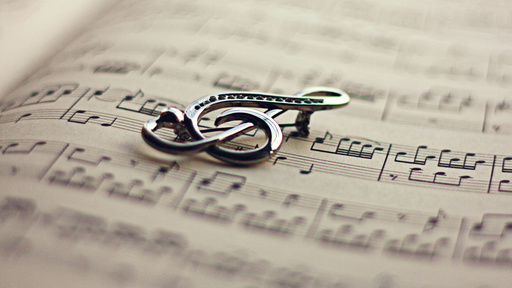TOOLBOX Theory / Teaching NotesMusic skillsThese are the music skills which we consider to be important for maximising your potential in music.This may not be a comprehensive list and you may be aware of other skills that are relevant to you.
|
Turkish_
|
1. Proficiency
Irrespective of what musical instrument you are learning or what musical skill you are developing the most important skill is developing proficiency in your chosen instrument or skill. This is the bedrock on which your career/interest in music should be built and without it, you may not have a worthwhile level of success or enjoyment.A focus on proficiency will enable you to harness your musical talent and innate abilities
2. Attend to your musical education
Almost equally important is your focus on the course in music you are pursuing and your capacity to apply yourself diligently to this course.
3. PRACTICEAll successful musicians have a strong practice ethic and rigorous practice routines.
The question for you is do you have a practice ethic and practice routines consistent with the degree of success you are aiming for. If not, it is important that you develop this aspect of your music Sustained practice with an emphasis on speed, power and control will ensure you have good technique 4. PERFORMANCE Performance
Many musicians are also performers and the degree to which they are required to perform in public will depend upon in the type of musician they have chosen to be. In order to perform to the best of your ability you will need to get as many opportunities to play as possible. If they are not coming your way it is up to you to actively seek them out. The best way to feel totally at home on the stage avail of so many opportunities to be there that it will become second nature to you. Performance Anxiety
There are some musicians for whom performance anxiety is a real problem and they suffer a lot every time they have to perform on stage. While a little bit of anxiety is good and can help to increase the standard of the performance, debilitating anxiety can be damaging and undermine a career. It is important to seek help if this is happening to you,. More 5. DEVELOP MUSICAL AWARENESSIn order to progress as a musician, it is necessary to have a certain level of musical awareness. This will depend on the seriousness with which you wish to pursue a career in music and how far you wish to progress.However, at a minimum, we believe that it is necessary for you to know how your musical activities /course fit into the broad spectrum of Music
If you are studying a particular instrument you should know:-
6. CULTIVATe SUPPLEMENTARY MUSIC SKILLSSpecific Music Skills
In addition to all of the above there may be specific music skills that you need or wish to develop or acquire. . These may include skills like Composing Songwriting, Reading Music, Voice Training etc 7. ImprovisationTo a large extent music is about learning to reproduce or copy the known. This is admirable in itself. However, there are other aspects of music that are worth exploring
For example, improvisation can bring a whole new dimension to the playing and the enjoyment of music There are, of course, different levels of improvisation and with simple folk music all sorts of weird and wonderful instruments can be pressed into service. At a more advanced level improvisation will be confined within fairly well defined parameters and must be consistent with the general direction and the context of the music being played. Advanced jazz musicians are wonderful exponents of this genre. So improvisation stimulates creativity and provides musicians with the freedom to express themselves in new and exciting ways More 8. Mental SkillsAs well as physical skills, focusing on musical talent and technique, there are also important mental skills which contribute to the making of a well-rounded musician. These involve the manner in which you deal with your thoughts, feelings and beliefs and the extent to which you are confident and well motivated.If you are experiencing difficulties in these area you should seek help. Otherwise, notwithstanding a person's undoubted musical talent, they may be the cause of undermining a promising career. These could also be considered to be non-music skills.
9. ENGAGe IN FURTHER EDUCATIONNo matter what level of music you are at you can always learn more and develop your skills further. It is important that you understand the educational background in which you are learning and that you are aware of possibilities for further education. Even if you are not involved in formal education you will have reached a certain level of proficiency and it important that you can benchmark that level of proficiency against what is expected from a successful musician in whatever music genre or field you have chosen.
TOOLBOX LINKThe Toolbox Engine contains a self-assessment questionnaire which will enable you to identify musical skills which may need attention. Link
NextExplore the non-music skills that you will need for success in music. Link
|
